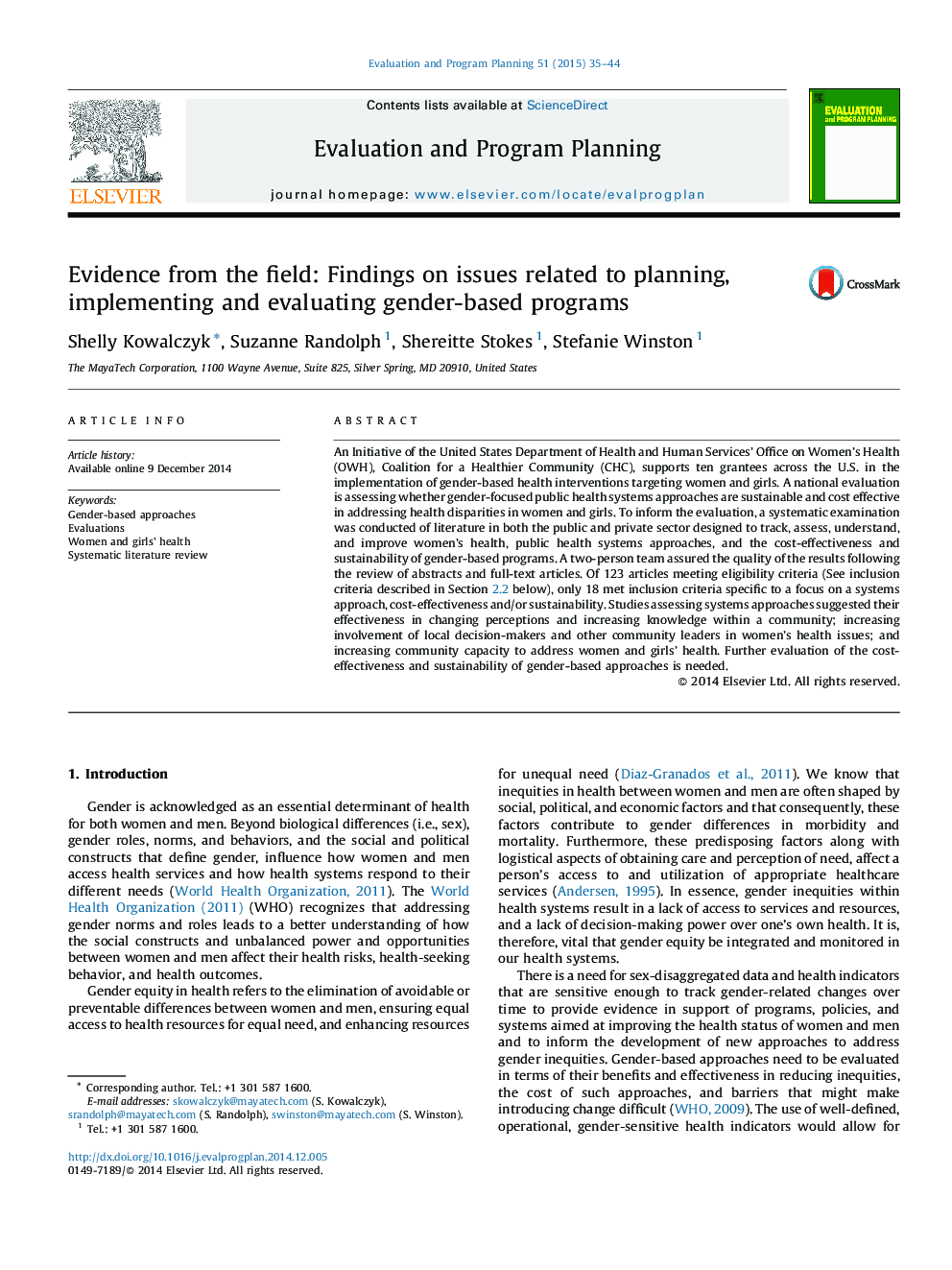| Article ID | Journal | Published Year | Pages | File Type |
|---|---|---|---|---|
| 322454 | Evaluation and Program Planning | 2015 | 10 Pages |
•A systems approach can be effective in improving women and girl's health for certain outcomes.•Identifying any gender-specific differences in outcomes provides evidence to support a gender-aware approach to improving health outcomes.•Literature on the cost-effectiveness and sustainability of gender-aware programming is limited.•Notably absent from the literature are studies that examine psychological variables and dimensions of individual difference as protective factors.
An Initiative of the United States Department of Health and Human Services’ Office on Women's Health (OWH), Coalition for a Healthier Community (CHC), supports ten grantees across the U.S. in the implementation of gender-based health interventions targeting women and girls. A national evaluation is assessing whether gender-focused public health systems approaches are sustainable and cost effective in addressing health disparities in women and girls. To inform the evaluation, a systematic examination was conducted of literature in both the public and private sector designed to track, assess, understand, and improve women's health, public health systems approaches, and the cost-effectiveness and sustainability of gender-based programs. A two-person team assured the quality of the results following the review of abstracts and full-text articles. Of 123 articles meeting eligibility criteria (See inclusion criteria described in Section 2.2 below), only 18 met inclusion criteria specific to a focus on a systems approach, cost-effectiveness and/or sustainability. Studies assessing systems approaches suggested their effectiveness in changing perceptions and increasing knowledge within a community; increasing involvement of local decision-makers and other community leaders in women's health issues; and increasing community capacity to address women and girls’ health. Further evaluation of the cost-effectiveness and sustainability of gender-based approaches is needed.
